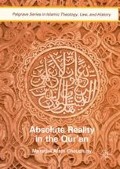Abstract
The cardinal epistemology of tawhid, meant here functionally as the unity of knowledge of the divine law is central to all forms of intellection in Islamic methodological worldview. The episteme of tawhidi unity of knowledge and its induction of the unifying and evolutionary learning world-system is formalized to relate to the goal of the universal balance, justice, and moderation termed as al-wasatiyyah. This connection is made via the medium of the objective and purpose of the tawhidi divine law of unity of knowledge and its induction in the unifying world-system by generality and details. This is the medium of maqasid as-shari’ah. This paper formalizes in methodological sense the model of the circular causal interrelationship between [T] awhid, al-[ w] asitiyyah, and [m] aqasid as-shari’ah. The resulting model of the Qur’anic origin, carrying with it the features of philosophical and mathematical intellection is both analytical and applied in nature. Several examples of particular problems are studied within the framework of the generalized theory of the T,W,M interrelations presented in this paper.
Access this chapter
Tax calculation will be finalised at checkout
Purchases are for personal use only
References
Attia, G. E. trans. Roberts, N. (2010). ‘A new conceptualization of maqasid’, in his Towards realization of the higher intents of Islamic Law, Maqasid al-Shari’ah a functional approach (pp. 77–149). Kuala Lumpur: Islamic Book Trust.
Bhaskar, R.A. (2002). Reflections On Meta-Reality: A Philosophy for the Present, New Delhi: Sage. ISBN 0-7619-9691-5.
Bruteau, B. (1997). God’s ecstasy (p. 179). New York: The Crossroad Publishing Co.
Burstein, M. (1991). History versus equilibrium: Joan Robinson and time in economics. In I. H. Rima (Ed.), The Joan Robinson legacy (pp. 49–61). Armonk/New York: M.E. Sharpe Inc.
Choudhury, M. A. (2001). Historicism. In Routledge encyclopedia of international political economy (pp. 687–689). London: Routledge.
Choudhury, M. A. (2015). Monetary and fiscal spending, complementarities to attain socioeconomic sustainability. Journal of Finance and Risk Perspectives , 4(3), Oxford University.
Dasgupta, A. K. (1987). Epochs of economic theory. Oxford: Basil Blackwell.
Georgescu-Roegen, N. (1981). The entropy law and the economic process. Cambridge, MA: Harvard University Press.
Hassan, M. K. (2011). Voice of Islamic moderation from the Malay world. Kuala Lumpur: EMIR.
Hassan, M. K. (2013). The need to understand Al-Wasatiyyah. Kuala Lumpur: Centre for Islamization, International Islamic University Malaysia.
Kant, I. trans. C. J. Friedrich (1949). The philosophy of Kant. New York: Modern Library.
Lucaks, J. (1968). Historical consciousness. New York: Harper & Row Publishers.
Mahdi, M. (1964). IbnKhaldun’s philosophy of history. Chicago: The University of Chicago Press.
Nabi, M. B. trans. A. B. Kirkary (1983).The Qur’anic phenomenon. Indianapolis: American Trust Publications.
Piketty, T. (2014). Capital in the twenty-first century. Cambridge, MA: Belknap Press of Harvard University Press.
Rawls, J. (1971). A theory of justice. Cambridge, MA: Belknap Press of the Harvard University Press.
Rucker, R. (1983). Large cardinalities. In Infinity and the mind. New York: Bantam New Books.
Seidel, V. J. (1986). Kant, respect and injustice: The limits of liberal moral theory. London: Routledge & Kegan Paul.
Sen, A. (1986). Poverty and famines: An essay on entitlement and deprivation. Oxford: Clarendon Press.
Shackle, G. L. S. (1972). Epistemics & economics: A critique of economic theory. Cambridge: Cambridge University Press.
Stiglitz, J., Sen, A., & Fittousi, J.-P. (2010). Measuring our lives. New York: The New Press.
Waliullah, S. (n.d.). Hujjat Allah Al-Baligah. Beirut: Dar Al-Marifat.
Wilson, E. O. (1998). Consilience, unity of knowledge. New York: Vantage Press.
Author information
Authors and Affiliations
Copyright information
© 2016 The Author(s)
About this chapter
Cite this chapter
Choudhury, M.A. (2016). Tawhid, Al-Wasatiyyah, and Maqasid As-Shari’ah . In: Absolute Reality in the Qur'an. Palgrave Series in Islamic Theology, Law, and History. Palgrave Macmillan, New York. https://doi.org/10.1057/978-1-137-58947-7_5
Download citation
DOI: https://doi.org/10.1057/978-1-137-58947-7_5
Published:
Publisher Name: Palgrave Macmillan, New York
Print ISBN: 978-1-137-58946-0
Online ISBN: 978-1-137-58947-7
eBook Packages: Religion and PhilosophyPhilosophy and Religion (R0)

